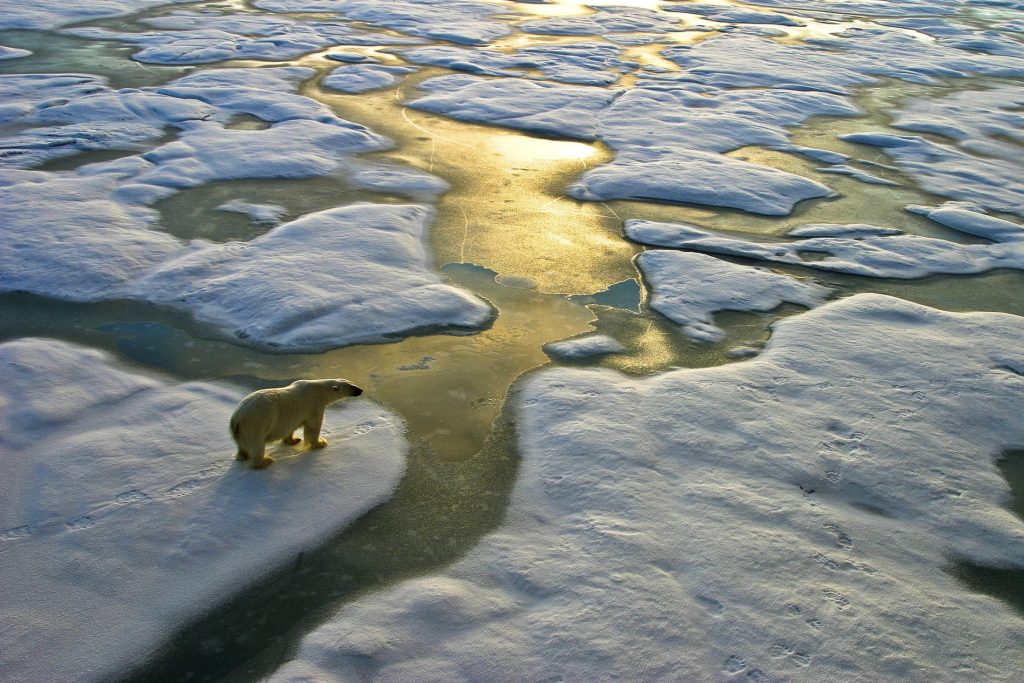In today’s rapidly changing world, the Arctic region is undergoing a profound transformation that has far-reaching consequences. From environmental shifts and economic opportunities to geopolitical dynamics, the Arctic meltdown is a phenomenon that demands comprehensive analysis. In this article, we delve deep into the various aspects of the Arctic meltdown, exploring its environmental impact, economic potential, and the geopolitical intricacies that surround it.
Environmental Impact of the Arctic Meltdown
The Arctic meltdown is an alarming consequence of global climate change, with rapidly rising temperatures causing the polar ice caps to shrink at an unprecedented rate. This has led to a cascade of environmental effects, including the rising sea levels that endanger coastal communities worldwide. The retreating ice has also opened up new shipping routes, albeit with detrimental consequences for marine ecosystems.
The loss of ice cover has dire consequences for Arctic wildlife, disrupting their habitats and threatening their survival. Iconic species like the polar bear and Arctic fox struggle to adapt to the changing conditions. Moreover, the melting ice releases stored methane, a potent greenhouse gas, which further exacerbates global warming.
Economic Opportunities in the Arctic
Amid the environmental concerns, the Arctic meltdown has also sparked interest in potential economic opportunities. The opening of new shipping routes, such as the Northern Sea Route, has the potential to reduce transit times between Europe and Asia significantly. This maritime shortcut could revolutionize global trade patterns, presenting cost-effective alternatives for cargo transportation.
Furthermore, the receding ice has revealed vast reserves of natural resources, including oil, gas, and minerals, previously inaccessible due to the harsh conditions. As these resources become more accessible, countries with Arctic territories are vying for the rights to exploit them, leading to intricate legal and geopolitical challenges.

Geopolitical Complexities and Competitions
The Arctic’s changing landscape has intensified geopolitical rivalries among nations with Arctic territories. The region’s untapped resources and strategic significance have prompted countries like Russia, Canada, the United States, and several Nordic nations to assert their claims. The potential benefits of resource extraction and control over new shipping lanes have elevated the stakes in this icy battleground.
The Arctic Council, an intergovernmental forum focused on Arctic issues, is pivotal in promoting cooperation and addressing environmental concerns. However, the geopolitics of the region often overshadow collaborative efforts. As countries scramble to secure their interests, maintaining peaceful coexistence and preventing conflicts become paramount.
International Legal Framework and Conservation Efforts
The Arctic meltdown has prompted discussions about international legal frameworks governing the region. The United Nations Convention on the Law of the Sea (UNCLOS) plays a central role in defining maritime boundaries and exploiting resources beyond national jurisdictions. However, interpretation and enforcement of these regulations remain contentious.
Conservation efforts are also gaining traction as the world acknowledges the fragile Arctic ecosystem’s importance. Efforts to establish marine protected areas and safeguard vulnerable species are being undertaken to mitigate the environmental impact of resource extraction and shipping activities.
The Way Forward
In the face of the Arctic meltdown, a comprehensive approach is necessary. Balancing economic interests with environmental preservation and international cooperation is key. Nations must work collaboratively within existing frameworks like the Arctic Council while striving to strengthen international agreements that govern the region.
As we witness the Arctic’s transformation, it is clear that the ramifications extend far beyond its icy shores. The meltdown’s environmental, economic, and geopolitical effects are interconnected, highlighting the need for a holistic approach that considers the well-being of the planet and its inhabitants.
In conclusion, the Arctic meltdown serves as a sobering reminder of the urgent need to address climate change and its multifaceted impacts. The world must unite to mitigate the consequences, promote sustainable development, and ensure the long-term viability of this unique and fragile region.


